International Council
….brings together distinguished persons from politics, business, science, art, culture and civil society who are elected by the Board of Directors by virtue of their office, their activity or their proven preference for the purpose of the Institute (purpose of the association). The International Council supports the Board.
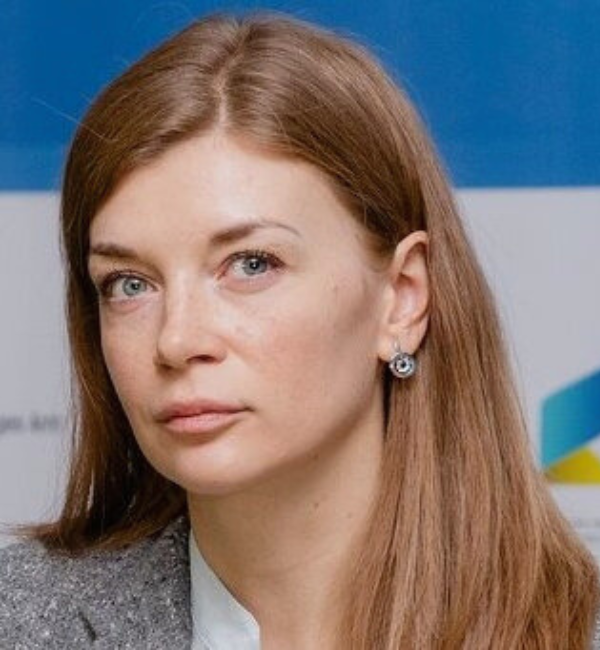
Director of UIIP Kyiv, Ukraine
Nadija Afanasieva is Director of Ukrainian Institute for International Politics (UIIP). Her main duties at the Institute are: fundraising, project elaboration, communication with donors, general supervising of the projects implemented by the Institute.
She is a part of the Priority Areas coordination team for PA 9 People and Skills of the European Strategy for the Danube Region, Support team to the EUSDR National Coordinator and the UA EUSDR Presidency 2022 Support team. The Institute has been promoting Ukrainian participation in the Strategy since 2015. Since 2016 Nadija has held trainings on project management, fundraising, presentation skills and communication for representatives of local authorities in Ukrainian regions. Also provides consultations for communities on project management and strategic planning.
Since 2021 she is expert on Smart Specialisation of the Joint Research Centre, EC
She is also a member of the EU-Ukraine Civil Society Platform, coordinator of the Working group 1 “Political dialogue, foreign and security policy”
She received a Fellowship at Wroclaw University, University of International Relations in 2012.
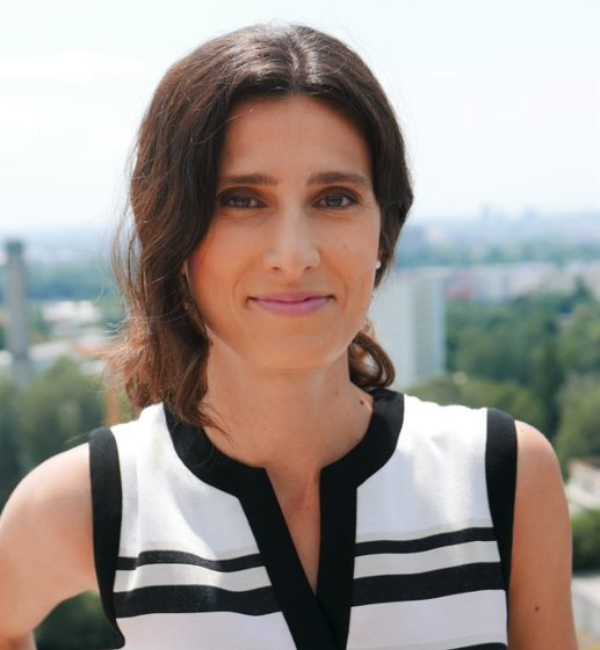
International Management, Kepler Uni Linz, Bosnia
Almina Bešić is an assistant professor at the Johannes Kepler University Linz. She is also an independent consultant and researcher for the European Migration Network and a visiting lecturer at the University of Graz. She holds a PhD in Economics and Social Sciences
from the University of Graz (Austria). In her doctoral thesis, Almina studied the strategies of multinational companies operating in South-Eastern Europe, more specifically their employment strategies across borders, examining highly skilled migrants. For her work, Almina was awarded a research fellowship from the Erste Foundation and she has received several awards, amongst others the Josef Krainer Prize for young researchers from the regional government of Styria in Austria.
Almina’s main research and teaching interests are linked to migration and employment issues as well as gender and diversity. She focuseson the integration of migrants at work, European migration policy; international HRM; management in transition economies; diversity and gender equality at work. Her work has appeared in academic journals such as European Management Review, Comparative Migration Studies, Equality, Diversity and Inclusion.
Almina spent several years working as a policy researcher in the United Kingdom and Belgium. Her main focus is employment and integration of migrants as well as gender and social inclusion for the European Commission and EU agencies.

Director of the Centre for Southeast European Studies at the University of Graz, Austria
Florian Bieber is a Professor of Southeast European History and Politics and Director of the Centre for Southeast European Studies at the University of Graz, Austria. He holds a Jean Monnet Chair in the Europeanisation of
Southeastern Europe and is the coordinator of the Balkans in Europe Policy Advisory Group (BiEPAG) and has been providing policy advice to international organisations, foreign ministries, donors and private investors. He studied Political Science and History at Trinity College (USA), the University of Vienna, and Central European University (Budapest) and has worked for the European Centre for Minority Issues and taught at Kent University (UK). Prof. Bieber is also a Visiting Professor at the Nationalism Studies Program at CEU. He has been a Visiting Fellow at the LSE and New York University, and held the Luigi Einaudi Chair at Cornell University. Recent publications include Debating Nationalism (Bloomsbury 2020) and The Rise of Authoritarianism in the Western Balkans (Palgrave 2020).
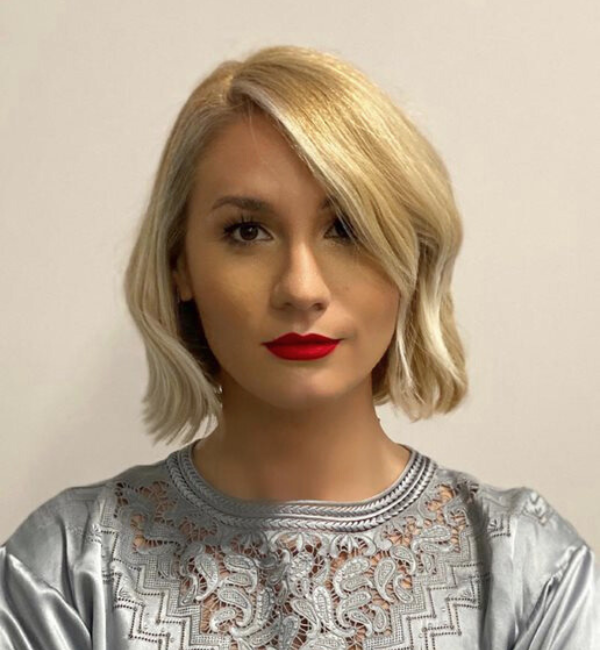
Executive Director of the Civikos Platform, Kosovo
Donika Emini, PhD Candidate, is leading the CiviKos Platform in Kosovo. She is a member of the Balkans in Europe Policy Advisory Group (BiEPAG). Ms. Emini is finishing her PhD thesis in Politics and International Relations at the
University of Westminster, London, in the United Kingdom (UK) She holds a master’s degree in public policy, specializing in public and non-profit management and international relations. She previously worked at the Kosovar Centre for Security Studies (KCSS). Furthermore, she was a Research Fellow at the European Union Institute for Security Studies (EUISS) Paris Office – fellowship granted by the European Fund for the Balkans (EFB). Ms. Emini worked with the Transparency International Secretariat in Berlin, Balkan Policy Institute (IPOL), and the General Consulate of the Republic of Kosovo in New York (United States). Ms. Emini is a country analyst for Freedom House covering Kosovo and Albania. She authored book chapters and research papers with focus on Western Balkans and the EU. Ms. Emini is a recipient of the Reagan Fascell Democracy Fellowship and will be the National Endowment for Democracy (NED) at the International Forum for Democratic Studies (IFDS) in Washington DC.
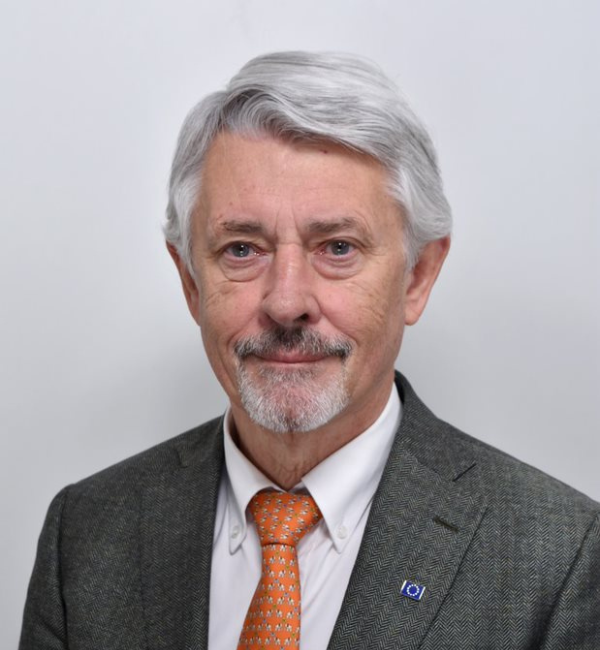
Former Federal Minister of Defence
Born 6.10.43, Salzburg;
Dr. iur. University of Vienna 1969;
University activities International Law, Political Science 1969-2003;
Abg. Z. NR 1977 – 1996 (FPÖ until 1993, then Liberal Forum);
Member of the European Parliament 1996 – 99;
2001-2003 OSCE Mission Kosovo, Director Department Democratisation;
2005 – 2007 Secretary General Union of European Federalists (UEF), Brussels;
2007 – 2017 President of the European Federalist Movement Austria;
2017 – Vice-President European Movement Austria;
2015 – Member of the Parliamentary Federal Army Commission;
Institute for the Danube Region and Central Europe, IDM (Board Member 2007-2019, 2007 – 2013 Admin. Head of the Balkan course of the IDM/University of Vienna)
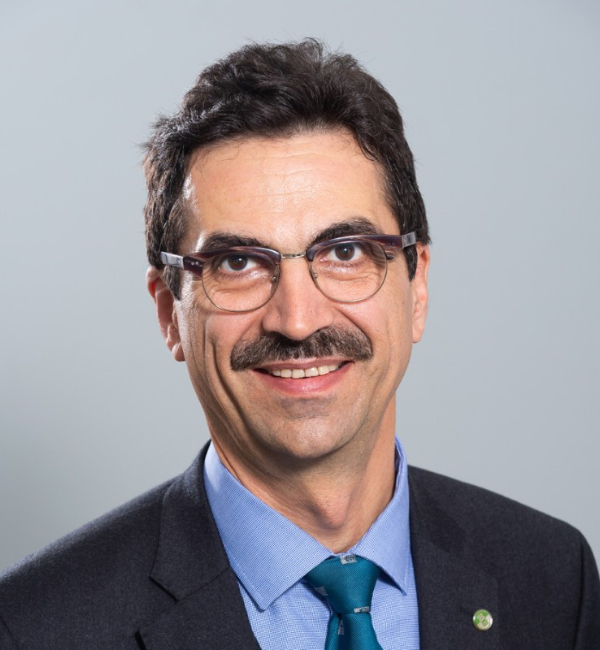
Professor at the University of Natural Resources and Life Sciences (BOKU) President Christian Doppler Forschungsgesellschaft
Martin H. Gerzabek studied agriculture at the University of Natural Resources and Life Sciences Vienna (BOKU) and received the Doctor of Agricultural Sciences (plant nutrition)
in 1987; 1984 – 2003 he was a scientist at the Austrian Institute of Technology, 1997–2003 Head of the department of environmental research there. Since 2001, he has been a full professor for environmental toxicology and isotopic methods at BOKU, where he was Vice-Rector for research 2003-2010 and rector 2009-2018. He was the founding President of ICA-CASEE and was president of the Danube Rectors’ Conference and vice-president of ICA. He received four honouree doctorates, the Emil-Ramann medal of the German Soil Science Society, the honouree membership of the International Union of Soil Sciences and is holder of the Grand Decoration of Honour in Gold for Services to the Republic of Austria and the Federal State of Lower Austria. He is a corresponding member of the Austrian Academy of Sciences, member of the Academia Europaea and acatech. He published approximately 520 scientific publications in the field of soil science and on environmental issues, as well as 58 book chapters and 4 books.
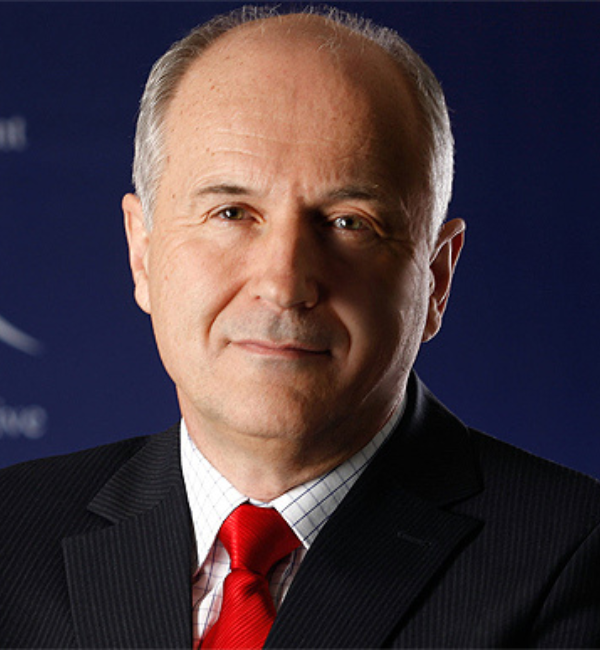
Diplomat, former European Union Special Representative for Bosnia and Herzegovina
Retired Ambassador
Int. High Representative (2009/2021)
EU Special Representative (2009/2011)
Valentin Inzko held a number of posts at the United Nations before moving to the Federal
Ministry of Foreign Affairs. His focus, both in the Federal Ministry and abroad, was almost always the former Yugoslavia, where he worked for over 24 years (Belgrade, Ljubljana, first post-war ambassador in Sarajevo and later High Representative with UNSR mandate and Novi Pazar, OSCE). Domestically, he headed the department for Central and Eastern Europe and Central Asia. In Prague he was the founder of the Austrian Cultural Institute and founding vice-chairman of the Austrian Prague High School. He also helped set up the Egon Schiele Gallery in Český Krumlov. Also because of his bilingual origins in Carinthia, he is an ardent supporter of a strong Central Europe in terms of ideas. He firmly believes that in the long term the Central European community of states will be able to contribute constructively to the European dialogue on the future as a numerically strong and important group.
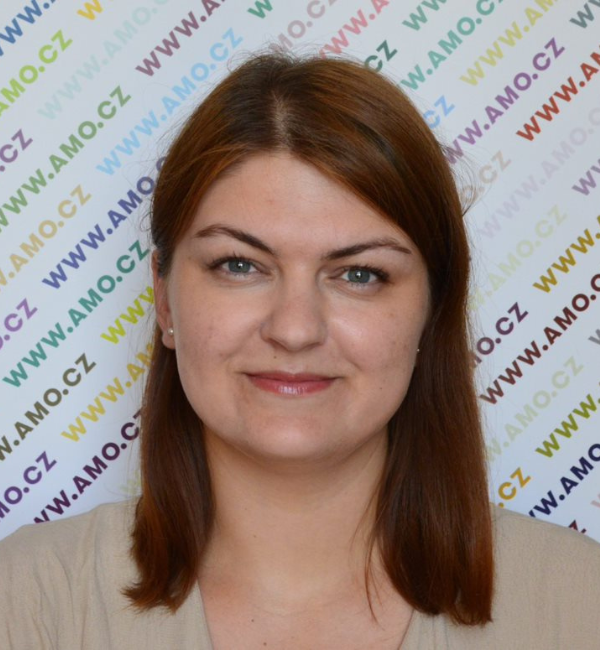
Research Director, Association for International Affairs (AMO), Czech Republic
Pavlína Janebová is the Research Director at the Association for International Affairs. He specializes in Czech foreign and European policy and relations between Central European states. She is a student of the International Relations and European Politics doctoral
program at Masaryk University. In her dissertation, she focuses on the role of the Visegrad Group in the Czech foreign policy since 1993. She is the author and editor of publications on the subject of Central Europe and Czech foreign and European policy.
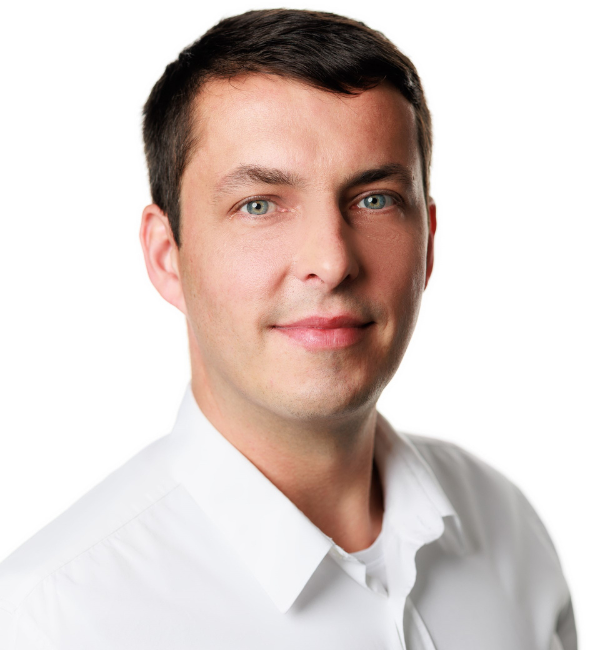
Co-founder of Iskriva, Institute for Development for Local Potentials, Slovenia
Zdravko Kozinc is the co-founder of Iskriva, the Slovenia-based Institute for Development for Local Potentials. His background is in economics and regional development with over 20 international projects developed and implemented. Among them are projects introducing novel concepts in practice such as:
ecosystem valuation as a prerequisite for sustainable development planning in the region of Pohorje, Slovenia; RES and EE investments as drivers of rural development in the Mediterranean; and working as a business development partner in establishing the Amazon of Europe Destination, the world’s first 5-country destination based on UNESCO Man and Biosphere Reserve (MAB) development principles. Zdravko is currently part of the core team bringing the EU Bauhaus concept to the Danube area, having succeeded in establishing the New European Bauhaus on the Danube Living Lab, as recognized by the EU Commission. Moreover, he works as an adviser to several public institutions and ministries on how to implement Bauhaus principles into the Cohesion Policy and other EU financial programmes.

Vice-President of GLOBSEC, Bratislava
Alena Kudzko is Vice President for Policy and Programming at GLOBSEC, a policy organization originated in Bratislava with offices in Brussels, Washington D.C., Kyiv, Warsaw, and Vienna. She oversees policy development and programming, and her current research focus is concentrated on
European and transatlantic relations and security, including the reform of security institutions and the EU, and impact of emerging technologies. Before joining GLOBSEC, she worked at various NGOs and academic institutions in Belarus, Estonia, and Hungary, specializing in the area of foreign relations, democratization, and community development. Alena graduated with honours and as the Outstanding Academic Achievement Award winner from Central European University in Budapest/Vienna with a Master’s degree in International Relations and European Studies. She previously studied international politics, languages and music at California State University, Bakersfield (as a U.S. State Department Global Undergraduate Fellow), Belarusian State University in Minsk, and the Estonian School of Diplomacy in Tallinn.
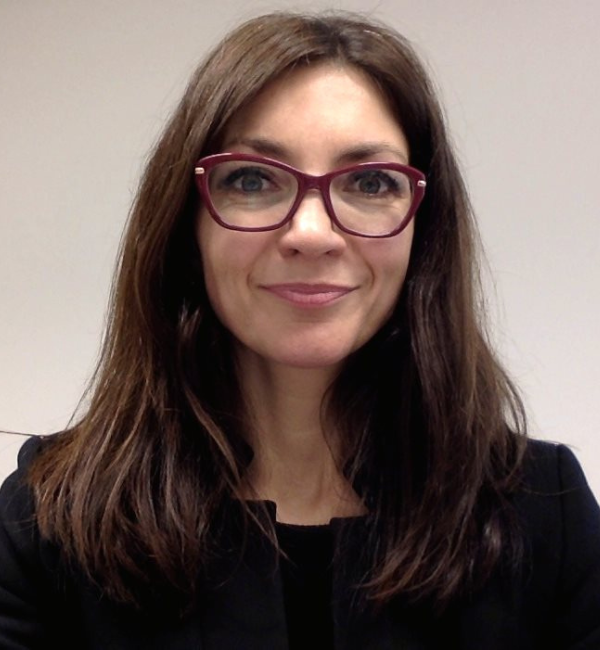
University of Warsaw, Poland
Renata Mieńkowska-Norkiene – professor of political science, sociologist, mediator, living in Warsaw and Luxembourg; associate professor at the University of Warsaw; chairwoman of International Institute of Civil Society (MISO); expert of Team Europe coordinated by the European Commission;
Prof. Mieńkowska-Norkiene has a great experience in managing projects as well as obtaining funding for their realization; her two main scientific fields of interests are: European integration and conflict management; Prof. Mieńkowska-Norkiene lectured at University of Vilnius, Liechtenstein-Institut, EURAC European Academy, London School of Economics and Political Science, Université Libre de Bruxelles and SciencePo in Paris; she worked in the European Commission; Prof. Mieńkowska-Norkiene speaks fluently 5 languages; she cooperates with numerous scientific journals (as a reviewer), NGOs (as a member of Program Councils) and TV programs (as a commenting expert).
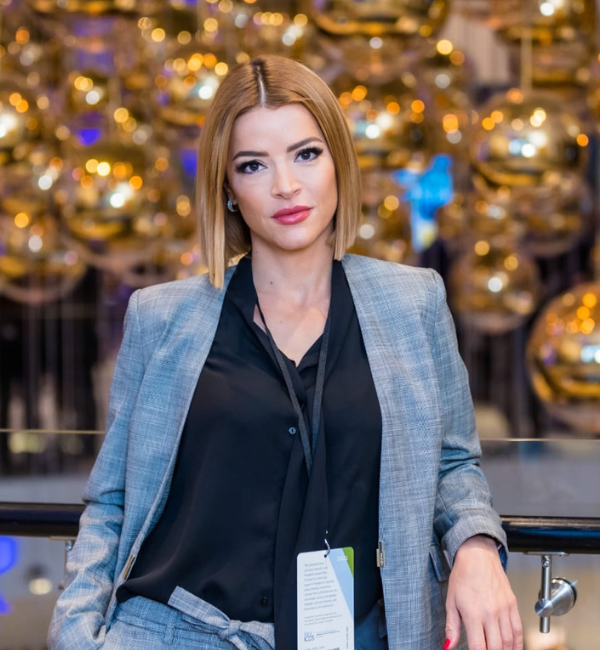
Programme Director of the European Policy Centre
Milena Mihajlovic (ex Lazarevic) is one of the founders and Programme Director of European Policy Centre (CEP), an independent, non-governmental, think tank based in Belgrade, Serbia. A proven expert in the field of public administration reform and European affairs, in
2014-2015 Milena acted as the Special Adviser to the Serbian Deputy Prime Minister. She started her career as a civil servant in the EU Integration Office of the Serbian Government. She is one of the authors of the Template for a Staged Accession to the European Union, a comprehensive proposal for reforming and reinvigorating the EU’s enlargement policy. Milena obtained her BA degree in European Studies and International Relations at the American University in Bulgaria as a Soros scholar, and her MA at the College of Europe, on a King Baudouin Foundation scholarship.

Professor at the History and Geography Department of the „Ion Creanga” Pedagogical State University of Chisinau and University „Valahia” Târgoviște, Romania
Sergiu MUSTEAŢĂ is a historian from the Republic of Moldova, professor at the History and Geography Department of the „Ion Creanga” Pedagogical State University of
Chisinau and University „Valahia” Târgoviște, Romania. He holds his PhD at the History Faculty of „Al.I. Cuza” University, Iași, Romania (1999) and habilitation thesis at the „Ion Creanga” Pedagogical State University of Chisinau (2021). He is a former research fellow of various scholarships in the USA, Hungary, Sweden, Poland, including DAAD and Humboldt Foundation at Bonn, Freiburg, and Braunschweig universities, Fulbright Scholar at the University of Maryland, University of California Berkeley and Stanford University. He is the author of 8 monographs, more than 300 scientific publications, editor of over 30 books, and editor of two scientific journals. His major academic interests are Medieval History and Archaeology of Eastern Europe; Cultural Heritage Preservation and History textbooks analysis. Email address: sergiu_musteata@yahoo.com
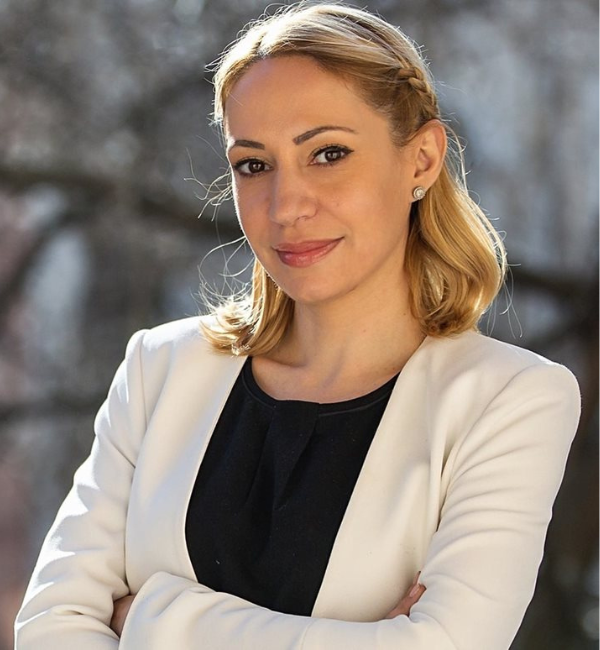
Executive Director, Center for Monitoring and Research (CeMI), Montenegro
Ana Nenezić, Executive Director of the think tank Center for Monitoring and Research (CeMI), is currently pursuing a PhD in International Relations at the Faculty of Political Sciences in Podgorica, University of Montenegro. She previously obtained a
Master’s degree in Political Communication and Media from the University of Missouri in the United States, as a Fulbright Scholar, while simultaneously serving as a Graduate Research Associate at the Political Communication Institute of the same university. She also holds a Master’s degree in European Studies from the Faculty of Political Sciences in Podgorica, University of Montenegro. Additionally, she holds a degree from the Faculty of Law, University of Montenegro. Ana specializes in electoral systems, strategic political communication, political campaigns, and the impact of digital technologies and traditional media on voters’ attitudes. Prior to her appointment as Executive Director of CeMI, Ana served as a Media Analyst for the European Network of Election Monitoring Organizations (ENEMO) as part of the core team for the 2019 Presidential and Early Parliamentary elections in Ukraine. She has extensive election monitoring experience, both as a legal and media analyst in Montenegro and abroad through ENEMO and CeMI. She was a Chief of the Election Observation Missions in Montenegro, for three election cycles for Parliamentary and Presidential elections. Before this, she worked as a Democratization and Europeanization Programme Coordinator at the Centre for Civic Education (CCE) since 2009, where she managed numerous projects related to democratization, the EU integration process, freedom of expression and media, the judiciary, and anti-corruption policies. Ana was an elected member for a 2-year mandate of the Joint Consultative Committee (JCC) between Montenegro and the European Economic and Social Committee and, simultaneously, a member of the Working Group for Chapter 23 (Judiciary and Fundamental Rights) within the Montenegrin Accession Negotiations for EU membership. She was also a member of the national Working Group for the preparation of the new Media Law. Additionally, she was a member of the Consultative Body for monitoring and evaluating the implementation of the Communication Strategy for Informing the Public on the Accession of Montenegro to the European Union and a member of the Working Body for the development of this strategy. Ana is the author and co-author of numerous publications, analyses, and articles focusing on various aspects of democracy, European integration, elections, and freedom of expression. She was the author of a Freedom House report on Montenegro and has worked as an external expert for several other international institutions and organizations. She is a Fulbright alumni and alumni of the U.S. State Department International Leadership Programme (IVLP). Additionally, she has completed several programs and trainings both domestically and abroad, organized by organizations such as the CEELI Institute, International Republican Institute (IRI), NDI, European People’s Party, Robert Schuman Institute, Political Academy of the Austrian People’s Party. Ana is fluent in English and has basic knowledge of French.
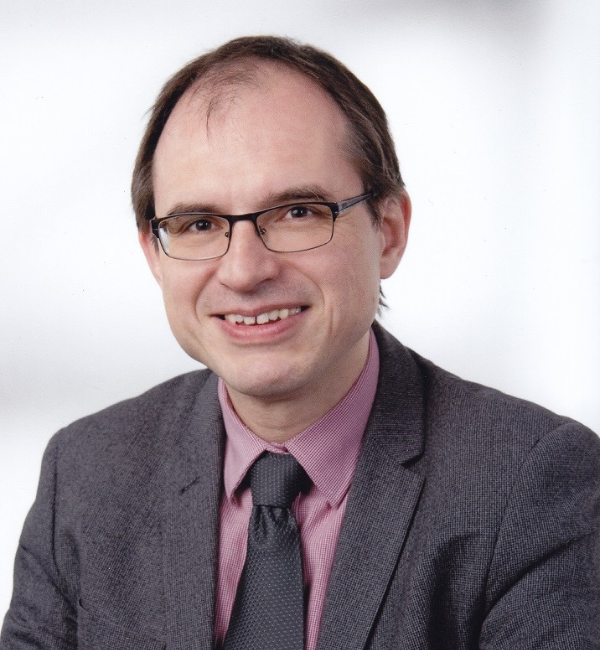
University Professor at the Institute of Slavic Studies, University of Vienna
Univ.-Prof. Mag. Dr. Stefan Michael Newerkla is Professor of West Slavic Linguistics at the University of Vienna. In addition, he is a full member of the Austrian Academy of Sciences, a member of the Academic Assembly and the Scientific Council of the Czech Academy of
Sciences, and co-chair of the Standing Conference of Austrian and Czech Historians on Common Cultural Heritage.
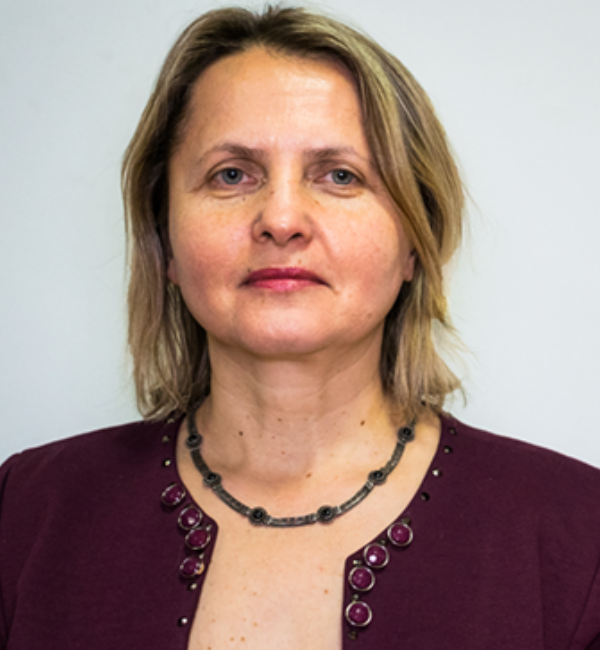
Alexandru Ioan Cuza University of Iasi, Romania
Gabriela Carmen Pascariu is Full Professor in European Economics and Policies at “Alexandru Ioan Cuza” University of Iasi, Romania. She is Director of the Centre for European Studies (https://cse.uaic.ro/), Jean Monnet professor and Team Europe expert
having more than 30 years of teaching and research experience in the field. She is currently an expert in various national and international committees, Editor in Chief of the Eastern Journal of European Studies (https://ejes.uaic.ro/) and member of the editorial board of other several publications in European Studies and Regional Development, Editor for Regional Science Policy & Practice (RSPP) (https://rsaiconnect.onlinelibrary.wiley.com/journal/17577802), expert evaluator for national and international bodies. Her research interests focus on economics if integration, regional development and European Cohesion Policy, resilience and regional development and cross border cooperation; she is author of numerous articles and book chapters or books editor.

Researcher at the University of Graz
Dr. Lura Pollozhani is a Researcher at the University of Graz, researching the contexts of violent extremism and radicalization in the Balkans and the MENA region. Her other research interests include citizenship practices in divided societies, social movements, and democratization. She completed her PhD in
Law and Politics at the University of Graz, while she was awarded an MSc in European Studies: Ideas and Identities at the LSE. Lura has previously worked as an Advisor to the Prime Minister of North Macedonia on cooperation with international organizations. She went on to work for the UNHCR as an external engagement officer. She has also worked as a Researcher at the University of Prishtina and as a University Assistant at the CSEES in Graz, as well as a Project Manager for ECMI Kosovo. She is a contributor to Kosovo 2.0 where she writes articles on political and social developments in North Macedonia.
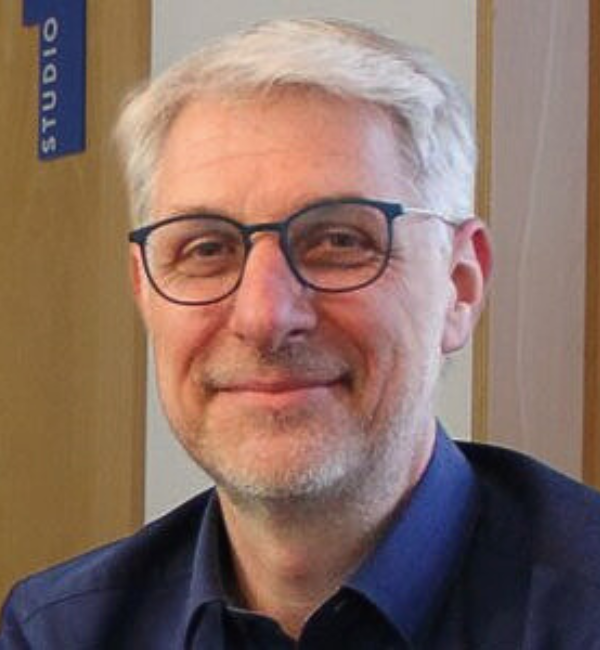
Professor of International Relations and Peace and Conflict Studies, Osnabrück University, Germany
Since 2009 Professor Osnabrück University, Co-Director of the MA Conflict Studies and Peacebuilding, since 2016 Chairman of the
Board of the German Foundation for Peace Research (DSF), 2002-2009 Senior Researcher at the Stiftung Wissenschaft und Politik (SWP, Berlin). Areas of Research & Expertise: European security policy, EU Eastern Partnership, EU-Ukraine relations, international conflict management, state- and peacebuilding, political violence & war studies.
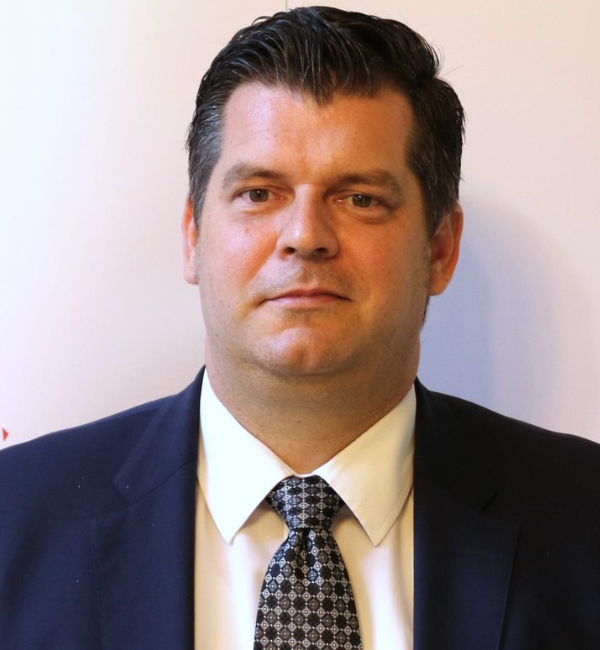
CEO of the Hungarian Institute for International Affairs
Ambassador Márton Schőberl completed his university studies at the Pázmány Péter Catholic University, where he graduated in 2007 with a degree in communication and history. Following that, he worked in the world
of business information systems and from 2010 in the central administration in various positions in the field of higher education and state asset management. He led the Hungarian think-tank Institute for Foreign Affairs and Trade (IFAT) between 2014 and 2018, then served as a Deputy State Secretary responsible for cultural diplomacy at the Ministry of Foreign Affairs and Trade in the fourth Orbán government (2018-2022). Since 2015, he has been the Extraordinary and Plenipotentiary Ambassador of Hungary. Márton returned to IFAT in July 2022, starting his second directorial term. He is the Chief Executive Officer (CEO) of the Hungarian Institute of International Affairs (HIIA) from April 2023
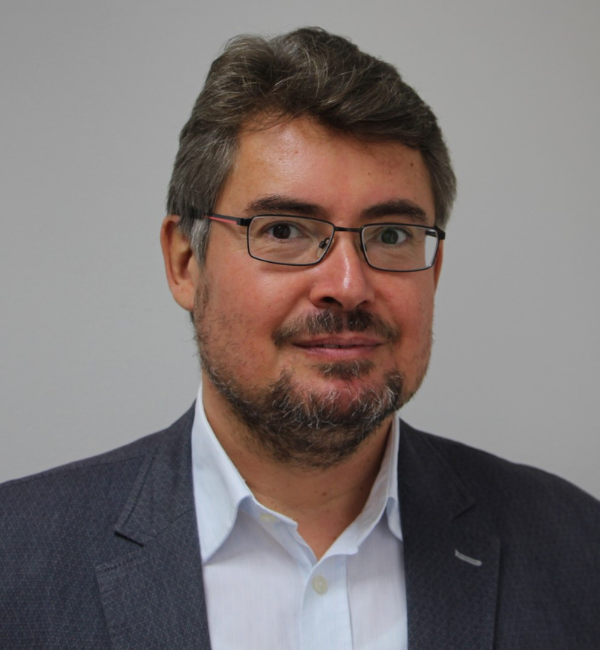
Director of the Research Center of the Slovak Foreign Policy Association (RC SFPA), Slovakia
Dr. Tomas Strazay has been the director of the Research Center of the Slovak Society for Foreign Policy (RC SFPA) since September 2019. Prior to that, he served as deputy director
and head of the Central and Southeastern Europe research program. Tomáš is a leading expert in projects focused on regional cooperation in Central Europe and EU enlargement and one of the founders of the Think Visegrad – V4 Think Tank Platform.
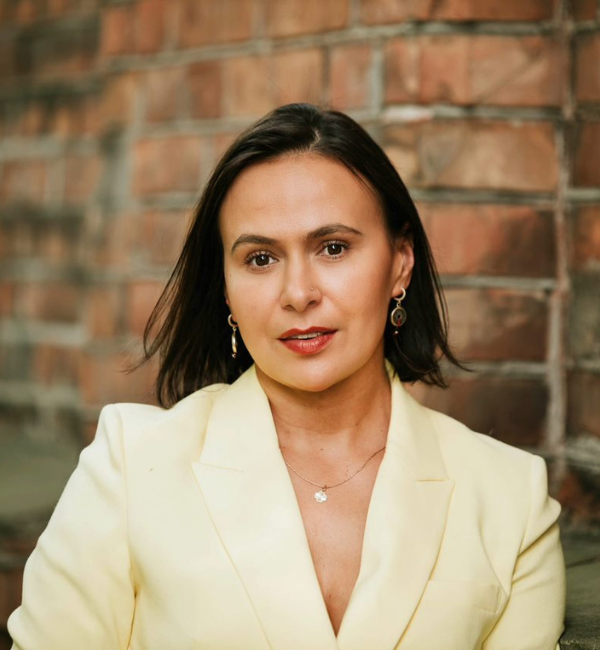
Chair of Towards Dialogue Foundations (Roma and Sinti Rights), Poland
Co- founder and president of the Foundation Towards Dialogue [Fundacja w Stronę Dialogu]. Researcher, educator, author, activist. For twenty years he has been working for the benefit of the Roma community and minorities
rights. Doctor of Cultural Anthropology. She worked as an assistant professor in Jagiellonian University and University of Warsaw. Consultant in the field of Diversity & Inclusion. She is a recipient of Olga Kersten-Matwin Award of of the Batory Foundation for constant integration, educational, psychological, legal and activation assistance for refugees of Roma origin. Fellow of: Columbia University, Leadership Academy for Poland,, Fulbright scholarship, Tom Lantos Institute, European Commission and the US Department of State. Member of the Democracy and Belonging Forum at the Othering & Belonging Institute, UC Berkeley and the Polish delegation at the International Holocaust Remembrance Alliance (IHRA). Author and editor of the books and articles regarding human rights and Roma minority.
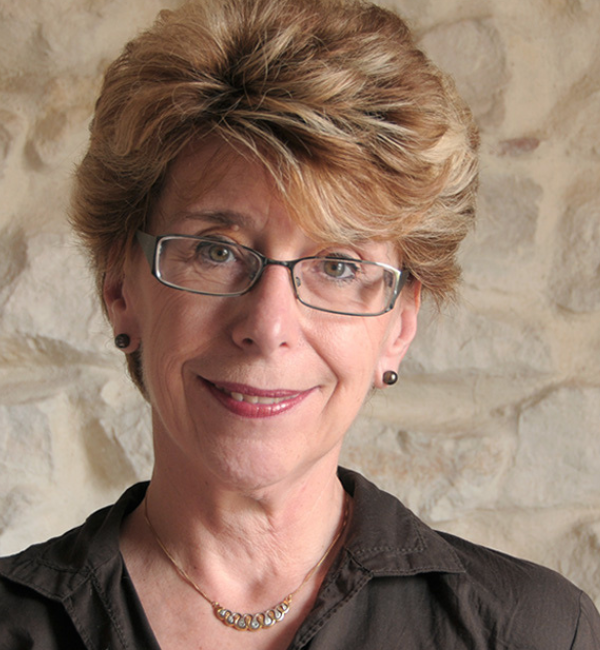
Professor at the University of Illinois at Urbana-Champaign
Maria Todorova is the Gutgsell Professor of History and Center of Advanced Study Professor at the University of Illinois at Urbana-Champaign. She teaches and researches the history of Eastern Europe, in particular the Balkans and the Ottoman Empire in the modern period. A graduate of the University of Sofia,
she has taught at the Universities of Sofia and Florida, and has held visiting appointments at Harvard, Rice, Maryland-College Park, California-Irvine, University of Graz, Bosphorus University, and the European University Institute. Her publications (monographs and edited volumes) include The Lost World of Socialists at Europe’s Margins: Imagining Utopia, 1870s – 1920s (2020), Scaling the Balkans” Essays on Eastern European Entanglements (2018), Remembering Communism: Private and Public Recollections of Lived Experience in Southeast Europe (2014), Postcommunist Nostalgia (2010, 2012), Bones of Contention (2009, 2011), Remembering Communism: Genres of Representation (2010), Balkan Identities: Nation and Memory (2004), Imagining the Balkans (1997, 2009, translated in 15 languages), Balkan Family Structure and the European Pattern (1993, 2006), English Travelers’ Accounts on the Balkans (1987), England, Russia, and the Tanzimat (1980, 1983), Historians on History (1988), Selected Sources for Balkan History (1977, 2006), and other edited volumes and collections of essays, as well as some 170 articles on social and cultural history, historical demography, and historiography. The recipient of a Guggenheim fellowship, she has been a fellow at the Wilson Center, the National Humanities Center, the Institute for Human Sciences (Vienna), the Wissenschaftskolleg in Berlin. She is doctor honoris causa of the University of Sofia (Bulgaria), the European University Institute (Italy) and Panteion University (Greece). In 2022 she was elected to the American Academy of Arts and Sciences.
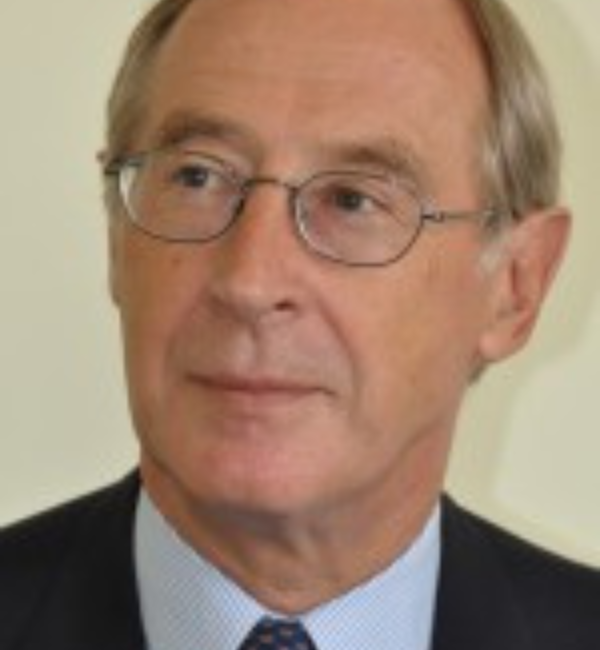
Professorship at the Faculty of International Relations, Andrássy University Budapest
In his first years in the Austrian Foreign Service, he worked as a consultant at the Austrian Representation in Geneva. In 1985 he became a first-time assignor at the Austrian Embassy in Bucharest. From 1985 to 1986 he took a leave of absence due to his political activities in
the presidential election campaign. In the following years he became a cultural councillor at the Austrian embassy in Washington D.C. and then first assigned at the embassy in Budapest. From 1999 to 2004 he was Ambassador to Cairo and accredited to the government in Khartoum. From 2004 to 2005 he was Ambassador to Lisbon. As head of the International Law Office at the Ministry of Foreign Affairs in Vienna, Trauttmansdorff was Chairman of the 2008 Task Force for International Cooperation in Holocaust Education, Remembrance and Research and has been particularly attached to Austrian memorial servants ever since. From January 2010 to the end of 2015, Trauttmansdorff was Austrian Ambassador in Prague. He is head of the Chair of Diplomacy I at Andrássy University Budapest.
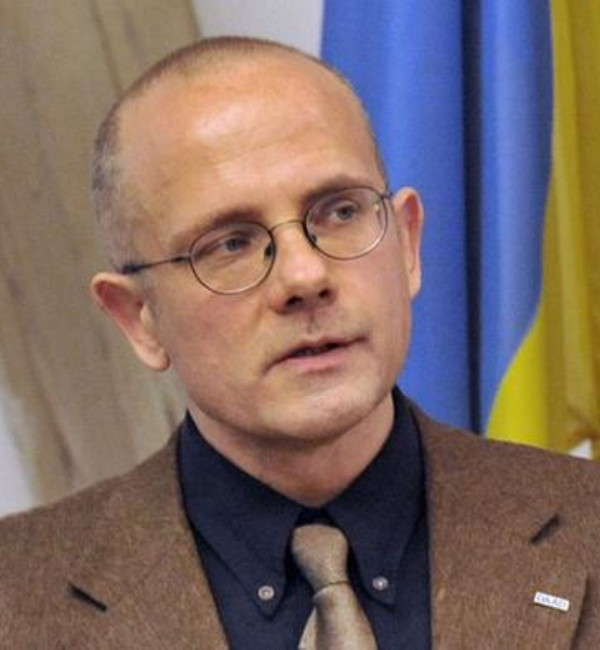
Senior Expert Ukrainian Institute for the Future, Kyiv
Analyst at the Stockholm Centre for Eastern European Studies of the Swedish Institute of International Relations and lecturer in the Department of Political Science of the Kyiv Mohyla Academy. Editor of the book series “Soviet and Post-Soviet Politics and Society” and “Ukrainian Voices” of the ibidem publishing
house Stuttgart. Co-editor of the “Forum for Eastern European Ideas and Contemporary History” (Eichstätt). Member of the Advisory Boards of the International Association for Comparative Faschismusforschung Budapest, Zeitschriften „World Affairs“ (Washington), „Fascism: Journal of Comparative Fascist Studies“ (Amsterdam) und „Ideology and Politics Journal“ (Kyjiw) sowie des Boris-Nemzow-Zentrums für Akademische Russlandstudien Prag und Sacharow-Forschungszentrums für Menschenrechte Wilnius. Studium in Leipzig (Staatl. gepr. Übersetzer Russisch), Berlin (Dipl.-Pol.), Oxford (M. Phil. Osteuropastudien) und Stanford (A. M. Politikwissenschaft) als Friedrich-Ebert, DAAD and ERP scholarship holder of the Studienstiftung des deutschen Volkes. 1998 Doctorate as Dr. phil. in History in Berlin (Meinecke Institute) and in 2007 Ph.D. in Politics in Cambridge (Trinity College). 1997-99 NATO Fellow at the Hoover Institution on War, Revolution and Peace, California. 1999-2001 and 2002-03 Lecturer at the Robert Bosch Stiftung at the Urals State University of Yekaterinburg and Kyiv Mohyla Academy. 2001-02 Thyssen Fellow at Weatherhead Center for International Affairs at Harvard University Cambridge, Mass. January-December 2004 Substitute Lecturer for Eastern European Studies in Oxford (St. Antony‘s College). 2005-08 DAAD lecturer at the Institute of International Relations, Shevchenko University Kyiv, Ukraine. 2008-10 Research assistant at the Chair of Central and Eastern European Contemporary History at the Catholic University of Eichstätt-Ingolstadt. 2010-14 DAAD lecturer at the Master’s programme “German and European Studies” of the Kyiv Mohyla Academy. 2014-2019 Research associate of the Institute for Euro-Atlantic Cooperation Kiev.
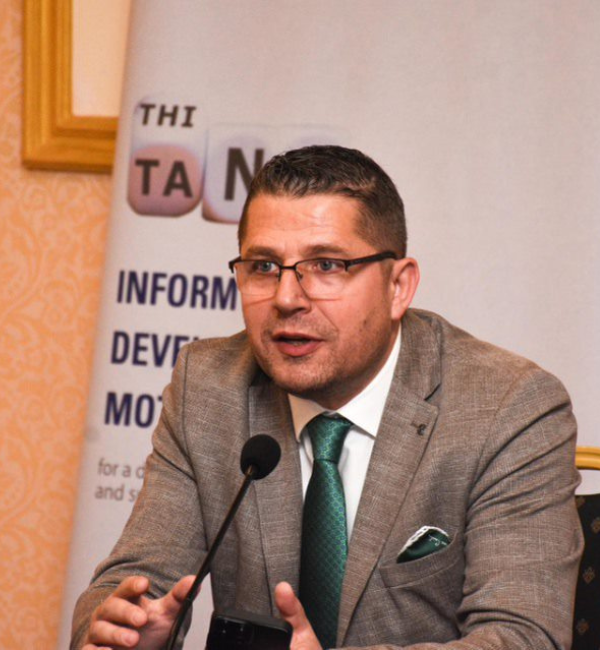
Programme Director, Institute for Democracy and Mediation, Albania
Gjergji Vurmo is Senior Advisor on anticorruption, civic space and EU enlargement at the Institute for Democracy and Mediation (IDM Albania) and member of BiEPAG – Balkans in Europe Policy Advisory Group. He is the author of several studies and reports related to civil society development,
governance, and EU accession process. Mr. Vurmo works as a consultant for various international organizations supporting reforms in Albania and the broader WB region (EU, OSCE, UNOPS and UN agencies, GiZ, USAID etc.). He has monitored and reported on Albania for well-known global reports such as the Open Government partnership (2013-2018), USAID CSO’s Sustainability Index (2010-2013), Open Parliaments (2012), and Freedom House’s Nations in Transit global report (2018-2020). He has served as a Steering Board member of networks of research institutes in the SEE region and is a contributor on WB region for different EU think tanks. Before working with IDM Albania, Mr. Vurmo has been affiliated with various think tanks in the WB region for several years. Gjergji studied law at Ss. Cyril and Methodius University in Skopje and received his MA degree in European studies at the University of Bologna, Italy.

Correspondent South Eastern Europe, Der Standard, Austria
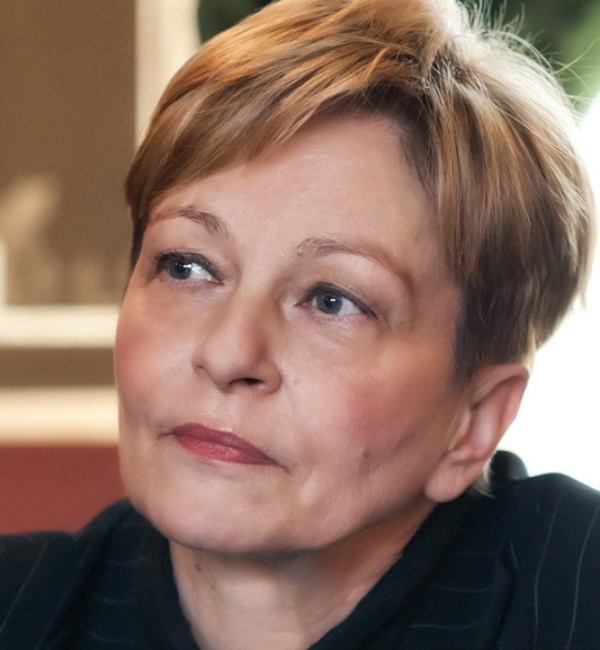
Milena Žic Fuchs is Full Professor of Linguistics at the University of Zagreb
Milena Žic-Fuchs is Full Professor of Linguistics at the University of Zagreb, Fellow of the Croatian Academy of Arts and Sciences and member of Academia Europaea. Prominent areas of expertise are Cognitive Linguistics, Semantics, Pragmatics and Cognitive Science ‒ currently actively engaged
in multidisciplinary research at the Croatian Brain Institute, Medical School of the University of Zagreb. She served as the Croatian Minister of Science and Technology and was Chair of the Standing Committee for the Humanities of the ESF. During her various mandates in EU bodies, she instigated policy incentives for Multi/Transdisciplinary Research as well as Digital Humanities. Currently she is a member of numerous Science Advisory Boards at European level in the domains of SSH and Research Infrastructures. Prof. Žic-Fuchs was a member of the EC High Level Group on Maximising Impact of EU Research and Innovation Programmes, chaired by Pascal Lamy. She is Member of the ERC Scientific Council.
